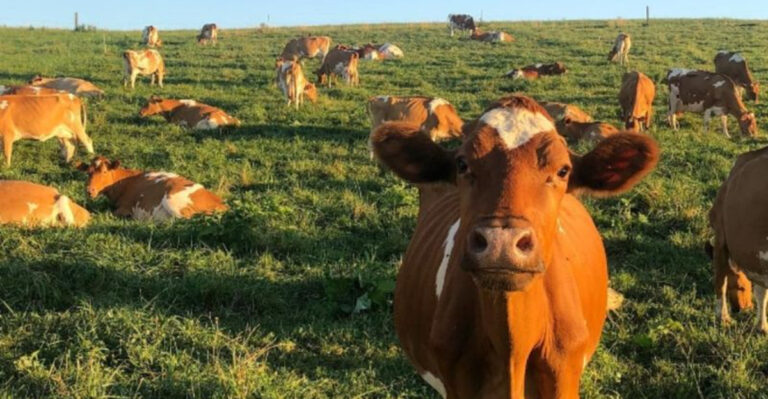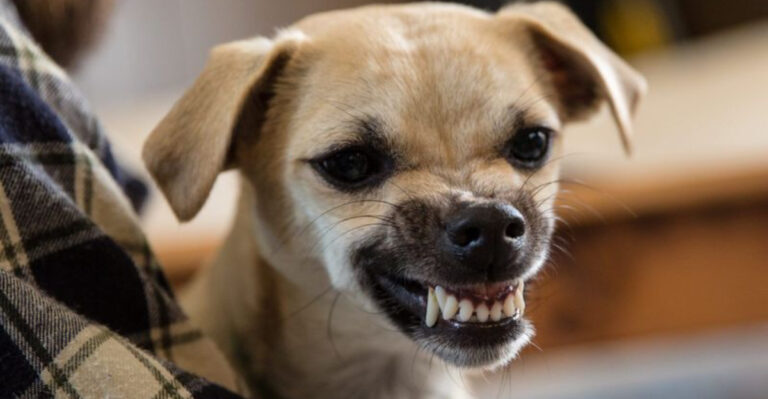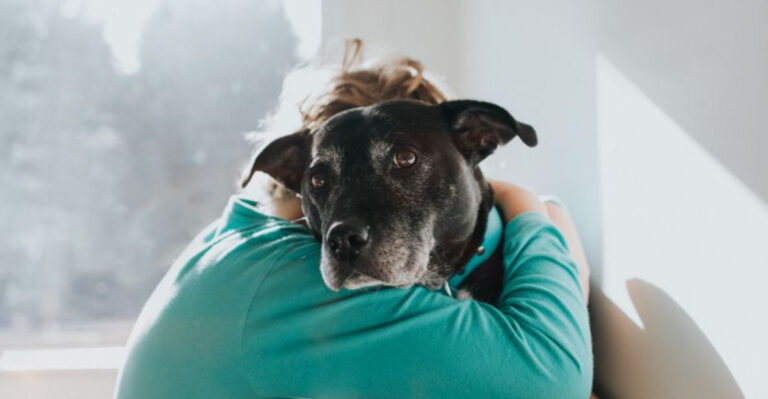15 Dog Breeds With Sensitive Souls (And 7 That Might Seem Heartless)
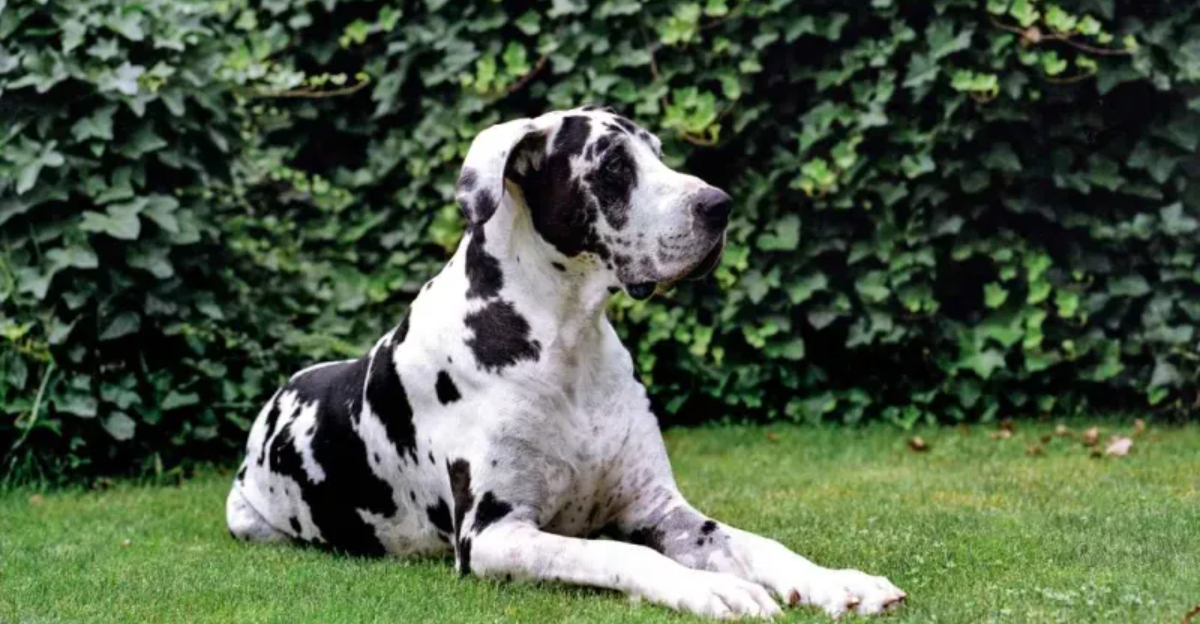
Dogs have a way of stealing our hearts with their loyalty and affection, but not all dogs express their love in the same way.
Some breeds are naturally sensitive, always in tune with your emotions and ready to offer comfort when you need it most.
Others, however, may come off as distant or even heartless at first—keeping their feelings close to the chest. But don’t be fooled! These dogs still have a lot of love to give, they just show it in their own unique way.
1. Golden Retrievers
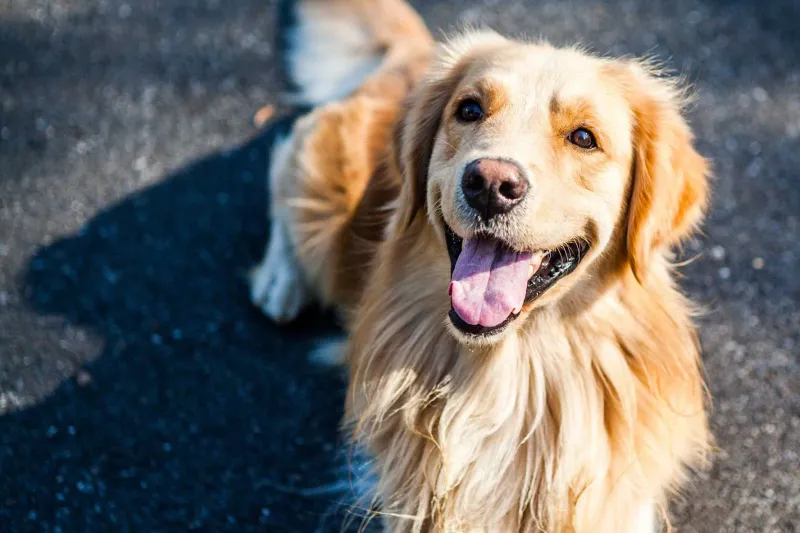
Golden Retrievers possess an uncanny ability to sense when you’re feeling blue. Their expressive eyebrows and soulful gaze communicate volumes of empathy without a single bark.
Many owners report their Goldens bringing toys as comfort offerings during tough times. These sunshine-furred companions often press against your leg or rest their head on your lap when they detect sadness.
2. Border Collies

Behind those intense, watchful eyes lies a heart that bruises easily. Border Collies internalize your moods, sometimes to their detriment, absorbing household tensions like emotional sponges.
Remarkably attuned to their humans, these dogs can become visibly stressed when their routine changes. A harsh word might send them slinking away, tail tucked, eyes downcast – their sensitive nature making them both brilliant workers and delicate souls.
3. Cavalier King Charles Spaniels

Cavaliers love so deeply they’ve earned the nickname “love sponges.” Their warm brown eyes follow you everywhere, reflecting pure devotion that’s almost impossible to resist.
Separation anxiety commonly affects these silky-eared sweethearts because their emotional connection to their people runs extraordinarily deep. Originally bred to warm royal laps, Cavaliers thrive on physical closeness and will happily spend hours nestled against you, sharing your joys and sorrows.
4. Great Danes
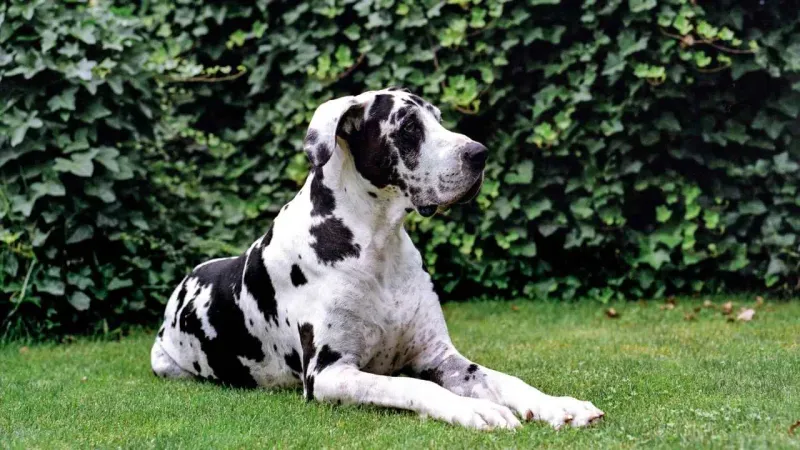
Don’t let their imposing size fool you – Great Danes are notorious softies. These lanky giants often believe they’re lap dogs, attempting to curl their massive frames onto your knees during thunderstorms.
Surprisingly thin-skinned, Great Danes respond poorly to harsh tones or criticism. Their feelings get hurt easily, resulting in dramatic sighs and forlorn expressions that could melt stone. Despite weighing up to 175 pounds, many are afraid of their own shadows!
5. Labrador Retrievers
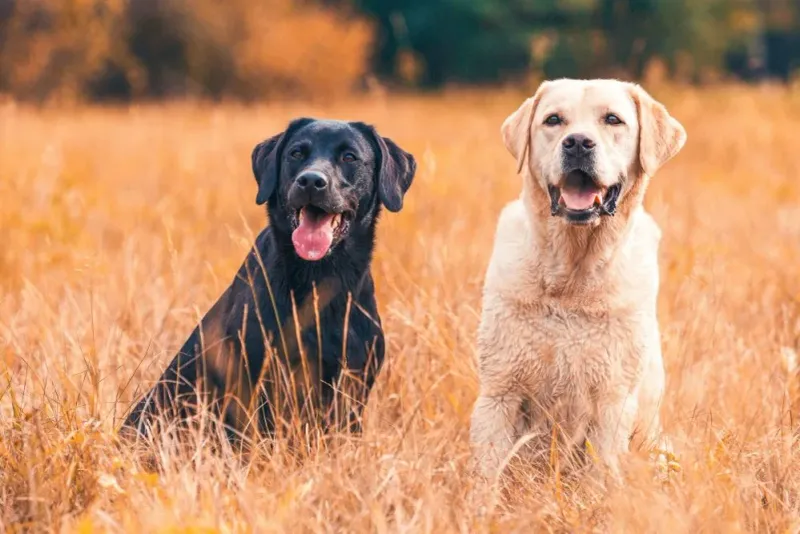
Labs consistently rank among the most empathetic breeds, often serving as therapy and emotional support dogs. Their innate ability to read human emotions makes them responsive to subtle mood shifts.
When you’re upset, expect a Lab to nudge your hand or bring a favorite toy as a peace offering. These faithful friends mirror your emotions – becoming subdued when you’re sad or bouncy when you’re happy. Their emotional intelligence creates powerful bonds that last a lifetime.
6. Bichon Frise
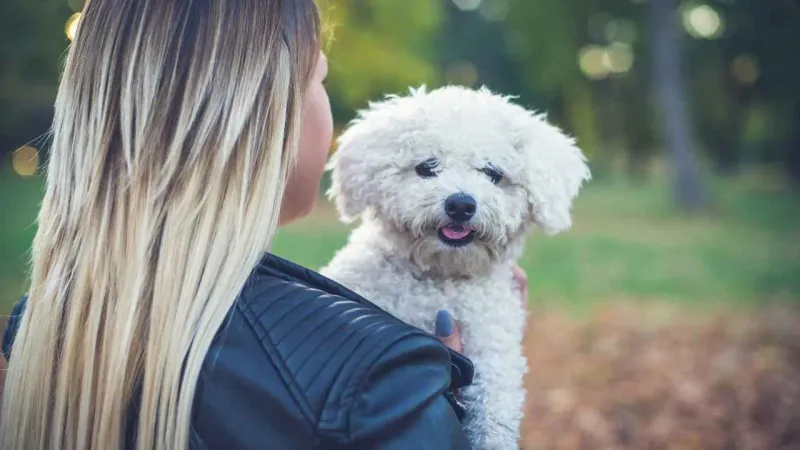
Beneath those fluffy white curls beats a heart finely tuned to human emotions. Bichons develop such profound connections with their people that they often mirror their moods perfectly.
These powder-puff pups have historically served as comfort dogs for the sick and elderly because of their intuitive understanding of human suffering. Remarkably sensitive to tension, Bichons can become visibly distressed during family arguments, often attempting to intervene with gentle paws or worried whimpers.
7. Greyhounds
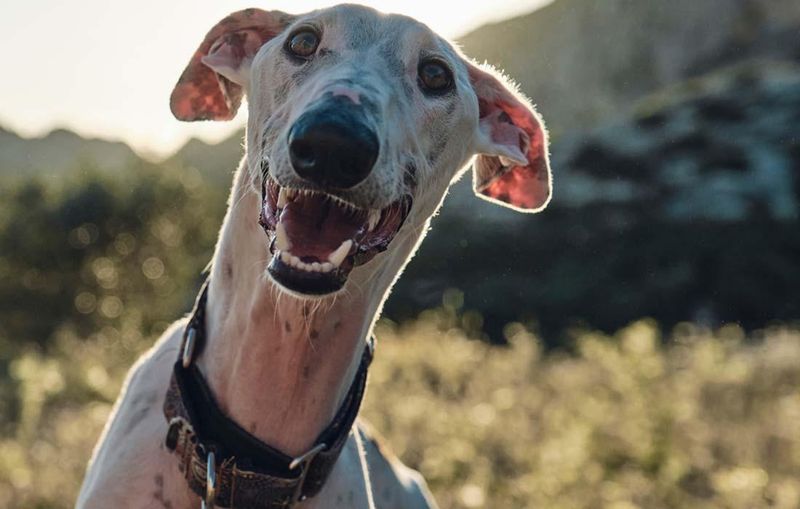
Behind their athletic frames and racing history, Greyhounds hide remarkably tender spirits. These sensitive speedsters often tremble at harsh words and can become overwhelmed in chaotic environments.
Many rescued racing Greyhounds show their vulnerability through gentle leaning against their humans – a touching display of trust from dogs who’ve experienced hardship. Their soulful eyes seem to hold ancient wisdom, while their thin skin makes them physically sensitive to match their emotional delicacy.
8. Rough Collies
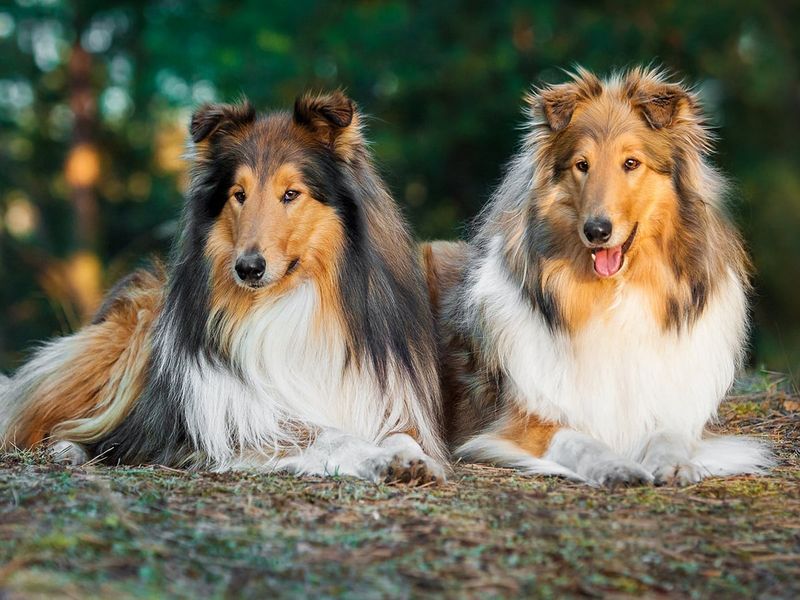
Rough Collies didn’t become TV stars by accident – their emotional intelligence makes them naturally heroic. These majestic dogs with flowing manes possess an almost supernatural ability to sense distress in family members.
Remarkably perceptive, Collies will often check on sleeping children or stay close to sick family members without being asked. Their sensitive temperament means they absorb household emotions deeply. Harsh criticism can devastate these dignified dogs, who thrive on gentle guidance and positive reinforcement.
9. Poodles
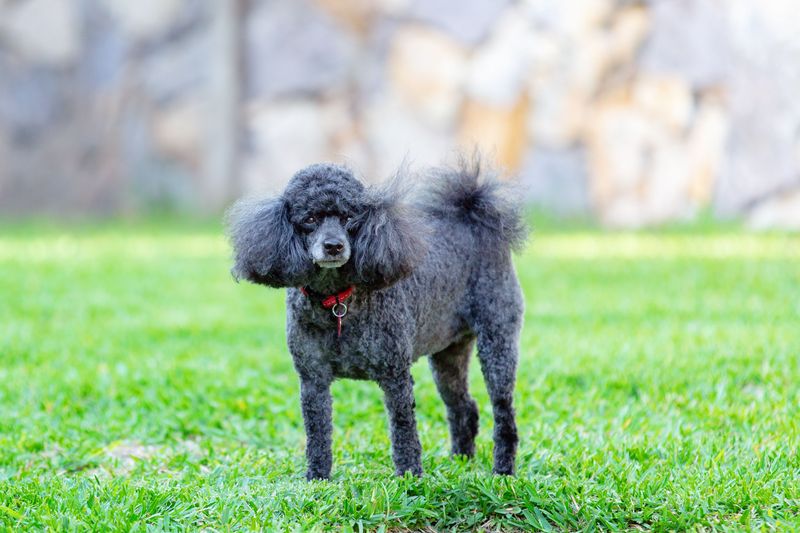
Beneath the fancy haircuts and regal bearing, Poodles possess extraordinarily tender hearts. Their intelligence amplifies their emotional sensitivity – they not only recognize your feelings but analyze them.
Standard Poodles especially form deep bonds with their people, often becoming visibly depressed when separated. Their highly tuned emotional radar makes them excellent therapy dogs. Remarkably, many Poodle owners report their dogs responding to unspoken thoughts, creating an almost telepathic connection that strengthens their sensitive reputation.
10. Papillons
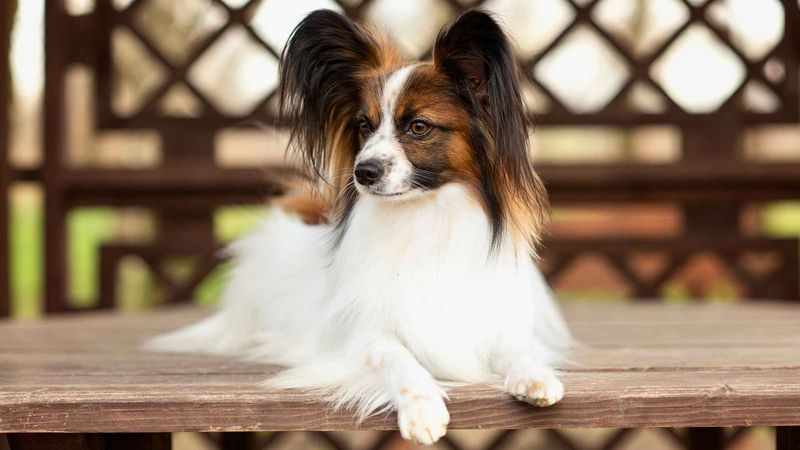
Those distinctive butterfly ears seem to catch emotional frequencies others miss. Papillons form intense bonds with their people, often becoming tiny emotional shadows who reflect your every mood.
Small but mighty in sensitivity, these elegant little dogs pick up on subtle shifts in your voice or expression. Their responsive nature makes them excellent companions for the elderly or anxious. Papillons often attempt to comfort their humans by gently pawing at tears or nestling close during difficult moments.
11. Vizslas
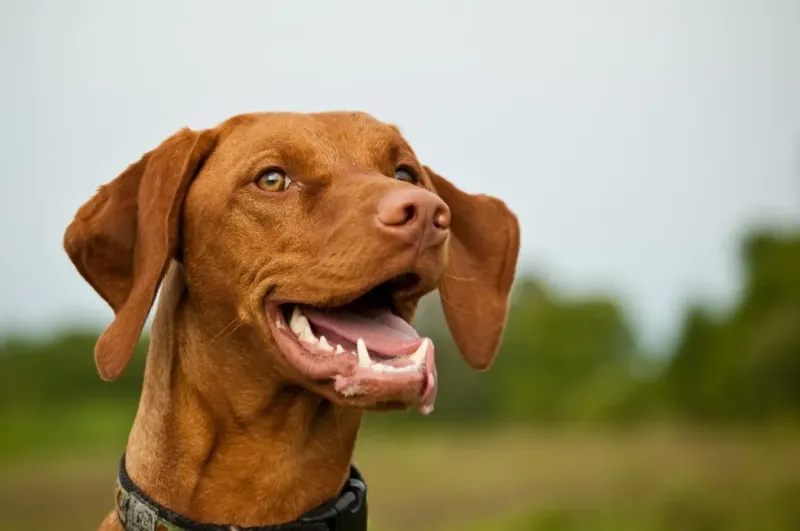
Hungarian Vizslas earn their nickname “velcro dogs” honestly – they physically attach themselves to their humans because emotional connection is their oxygen. These rust-colored companions experience separation anxiety more intensely than most breeds.
Vizslas communicate their feelings with soulful eyes and expressive eyebrows that would make any actor jealous. Their sensitivity extends to training methods; harsh corrections can crush their spirits. These dogs thrive on gentle guidance and positive reinforcement, blossoming when they feel emotionally secure.
12. Newfoundlands
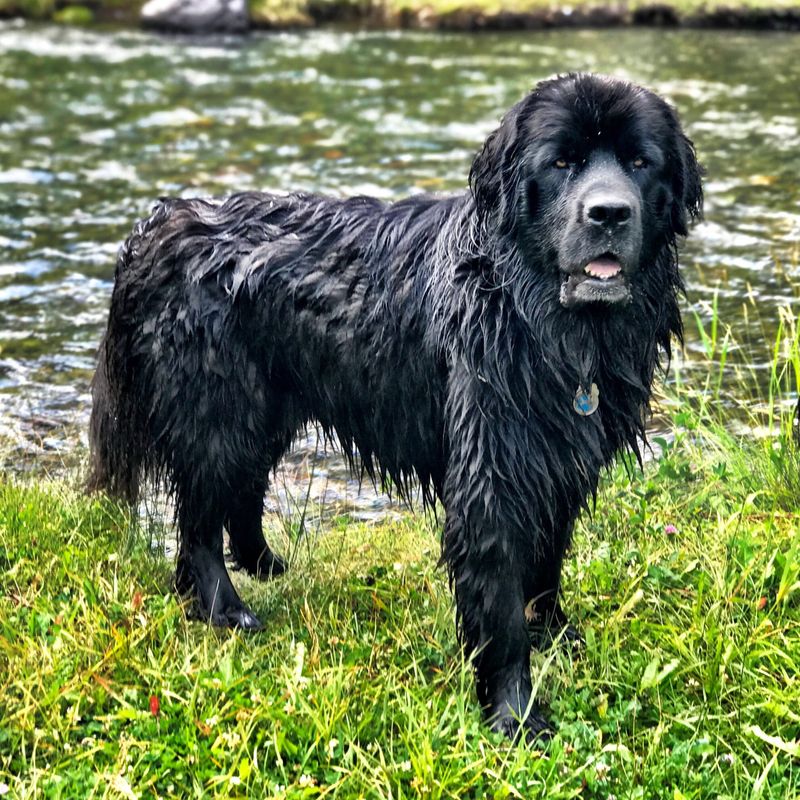
Newfoundlands possess an innate nurturing instinct that extends beyond their famous water rescue abilities. These massive, bear-like dogs seem to understand human vulnerability on a profound level.
Famous for their affinity with children, Newfies instinctively protect the smallest family members. Their emotional sensitivity makes them exceptional therapy dogs despite their intimidating size. A Newfoundland will press its substantial weight against you during moments of distress – a living, breathing weighted blanket offering comfort through physical presence.
13. English Springer Spaniels
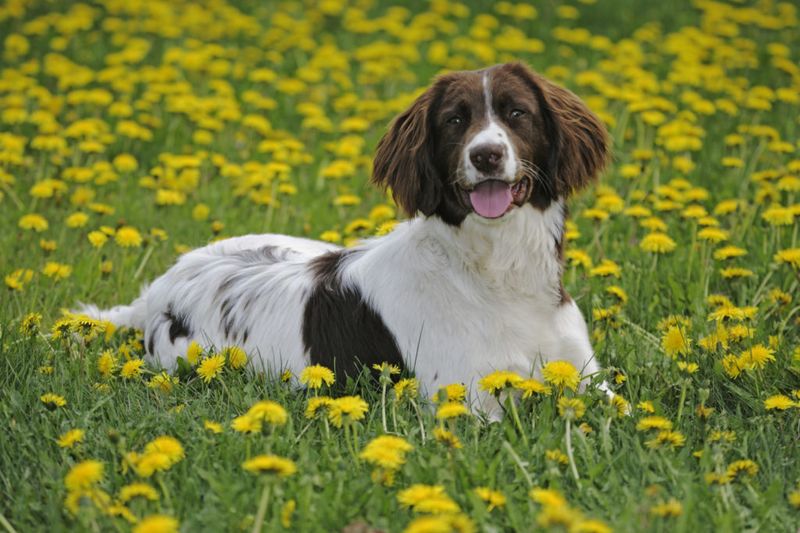
Those freckled faces hide nothing – Springer Spaniels wear their hearts in their expressive eyes. Their eyebrows seem to dance with emotion, communicating joy, concern, and everything between with remarkable clarity.
Highly attuned to their family’s emotional state, Springers become subdued when sensing sadness or tension. These medium-sized companions often insert themselves into family hugs or consoling moments. Their emotional transparency makes them terrible poker players but exceptional emotional support partners during life’s challenges.
14. German Shepherds
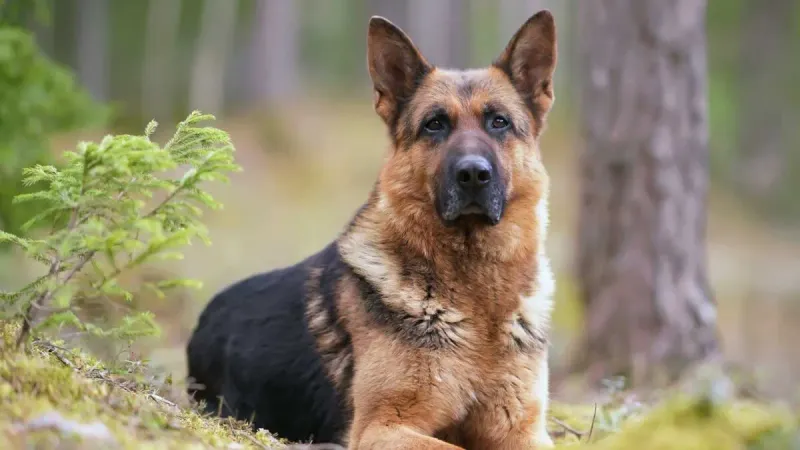
Behind that confident working-dog exterior beats a remarkably sensitive heart. German Shepherds form profound emotional bonds with their families, often designating themselves as emotional guardians.
These intelligent dogs can distinguish between different types of tears – responding differently to sadness versus physical pain. Their emotional sensitivity makes them exceptional service dogs for PTSD sufferers. German Shepherds will often place themselves physically between their humans and perceived sources of distress, offering both emotional and physical protection.
15. Cocker Spaniels

Those soulful eyes aren’t just for show – Cocker Spaniels function as emotional weather vanes in their households. Their sensitivity to human moods can make them appear almost psychic at times.
Remarkably responsive to voice tones, Cockers will wilt under criticism or harsh words. Their feelings get hurt easily, leading to dramatic displays of emotional distress. These silky-eared companions often press against your legs during anxiety or sadness, offering silent support through physical closeness when you need it most.
16. Chow Chows
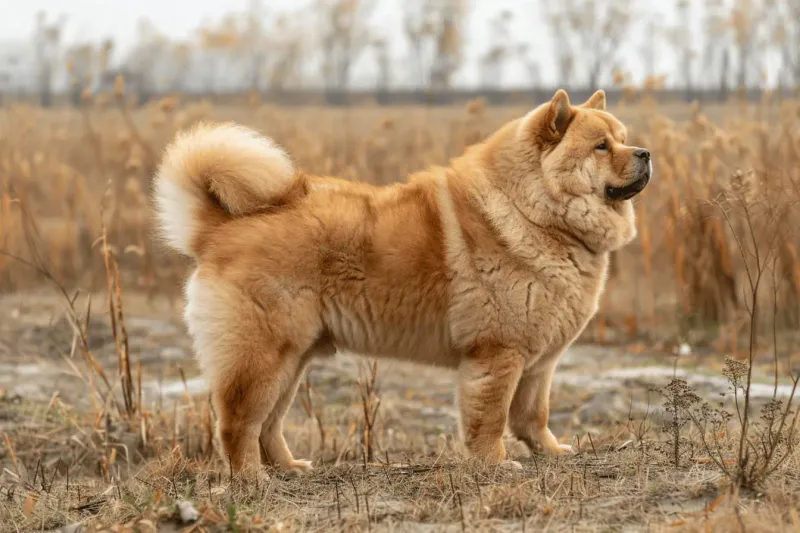
Chow Chows bring a distinctly feline attitude to the dog world. Their emotional restraint and independent nature can read as coldness to those expecting typical canine enthusiasm.
Reserved and dignified, Chows often bond deeply with one person while maintaining polite disinterest in others. Their lion-like appearance matches their pride – they resist excessive cuddling and rarely display obvious affection. Behind their aloof exterior, however, Chows develop deep attachments; they simply express devotion through quiet presence rather than exuberant displays.
17. Afghan Hounds
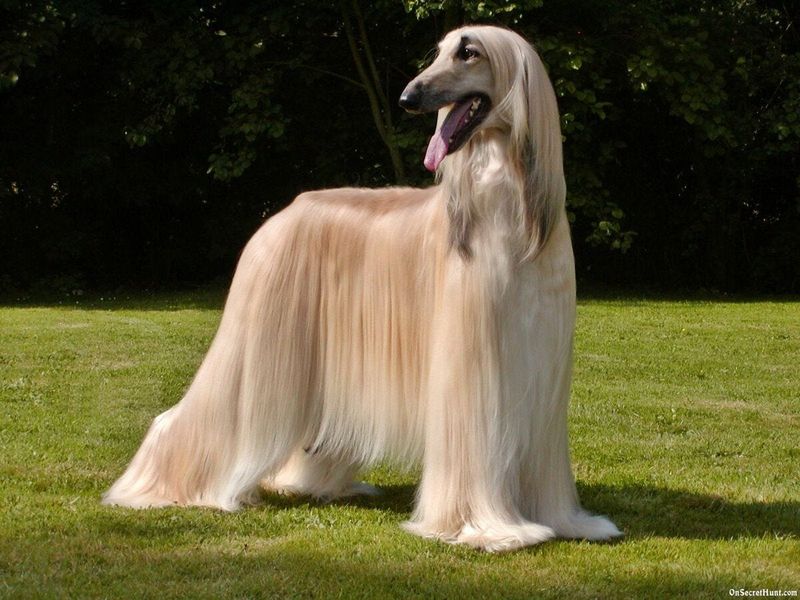
Afghan Hounds carry themselves with such regal detachment that many mistake their independence for emotional coldness. Their flowing locks and elegant bearing contribute to their aloof reputation.
These ancient sighthounds operate on their own schedule, offering affection when it suits them rather than when desired. Their self-sufficient nature can be jarring for those expecting eager-to-please companions. Afghans rarely seek reassurance or approval, maintaining a dignified distance that some interpret as emotional unavailability.
18. Basenji
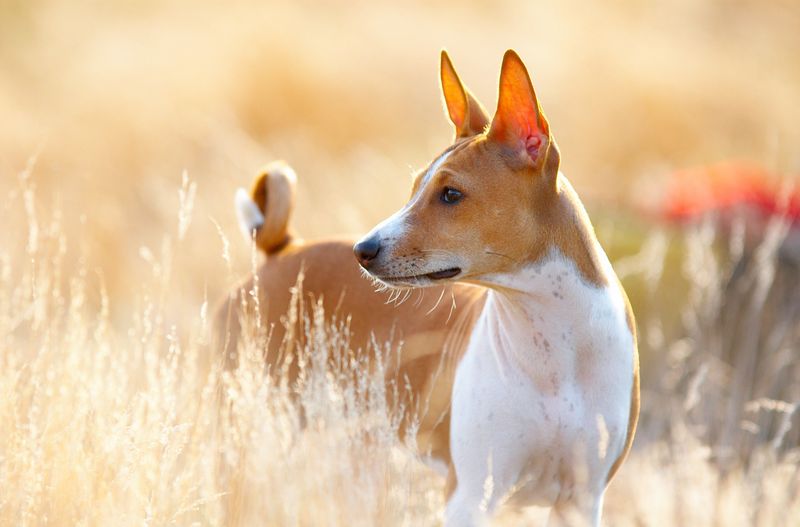
Known as the “barkless dog,” Basenjis communicate their feelings through yodels, growls, and expressive facial movements rather than traditional barking. Their cat-like grooming and independent nature contribute to their reputation for emotional detachment.
These ancient African hunting dogs maintain a self-sufficient streak that can read as aloofness. Affection comes on their terms – they’re not natural cuddlers. Basenjis form selective bonds and may seem indifferent to strangers, leading many to perceive them as emotionally unavailable compared to more demonstrative breeds.
19. Shiba Inus
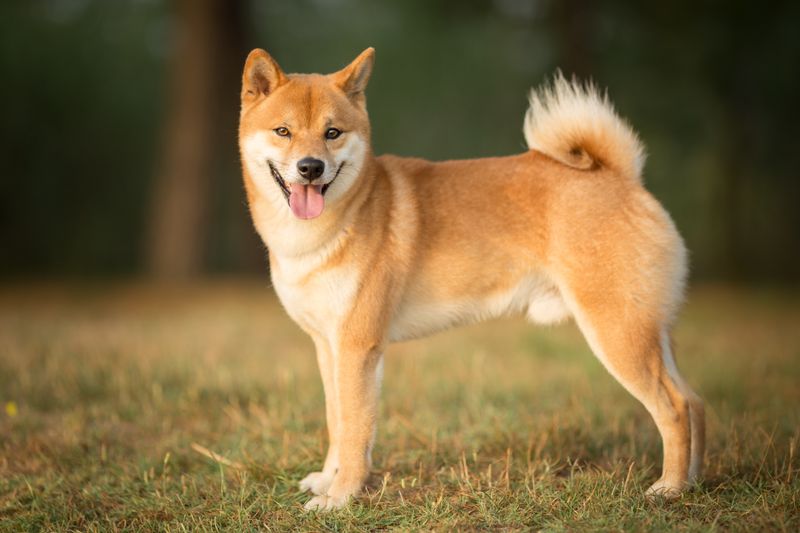
Shiba Inus have skyrocketed in popularity partly because of their cat-like independence and distinctive “Shiba scream.” These fox-faced dogs maintain emotional boundaries that can seem standoffish to the uninitiated.
Shibas typically dislike excessive handling or forced cuddles, preferring to set the terms of physical affection. Their self-cleaning habits and independent problem-solving contribute to their reputation for emotional self-sufficiency. While loyal to their families, Shibas rarely display the desperate need for approval common in more sensitive breeds.
20. Akitas
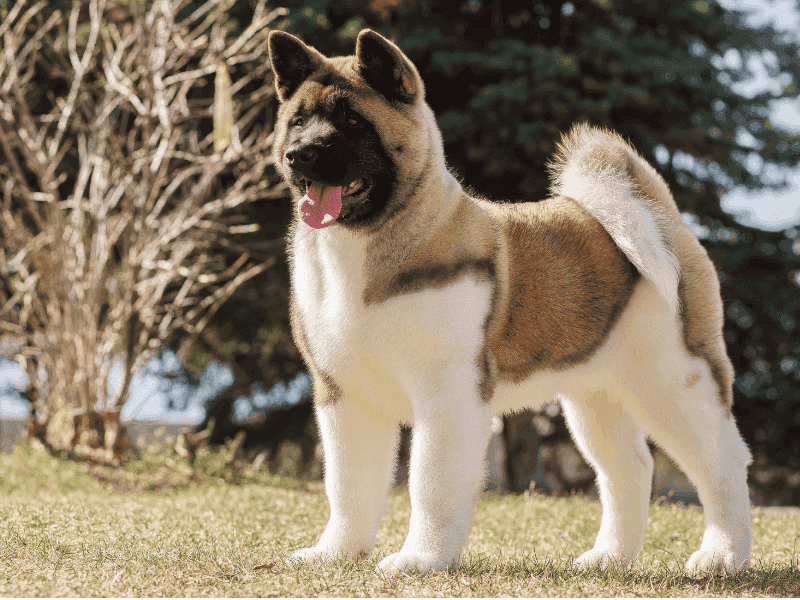
Akitas maintain a dignified reserve that can read as emotional coldness. Their historical role as silent guardians contributes to their reputation for stoicism and detachment.
Unlike more demonstrative breeds, Akitas rarely seek validation or attention. Their affection comes subtly – a lean against your leg or quiet presence in your room.
This powerful Japanese breed typically bonds deeply with family while remaining indifferent or suspicious toward outsiders, creating a reputation for selective emotional availability.
21. Dalmatian
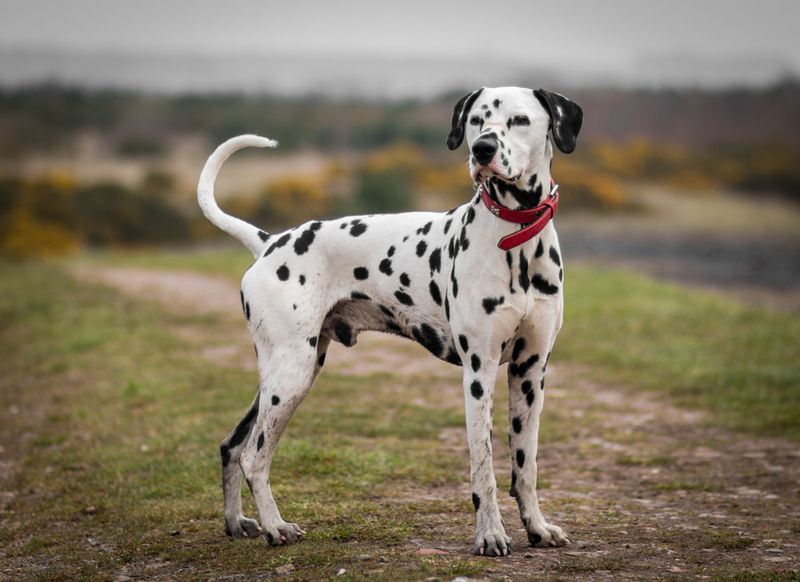
Dalmatians have a reputation for being aloof or even heartless, but that couldn’t be further from the truth. Known for their strong-willed and independent nature, they can come across as distant, especially to those who aren’t familiar with the breed.
Dalmatians often prefer a strong, confident owner and are more focused on respect and leadership than on constant cuddling.
They’re not the type to shower you with affection just because you’re there, but once they bond with you, they become incredibly loyal and protective. Their loyalty is fierce, even if it’s not always expressed in the way some other dogs might show their love.
22. Chihuahua
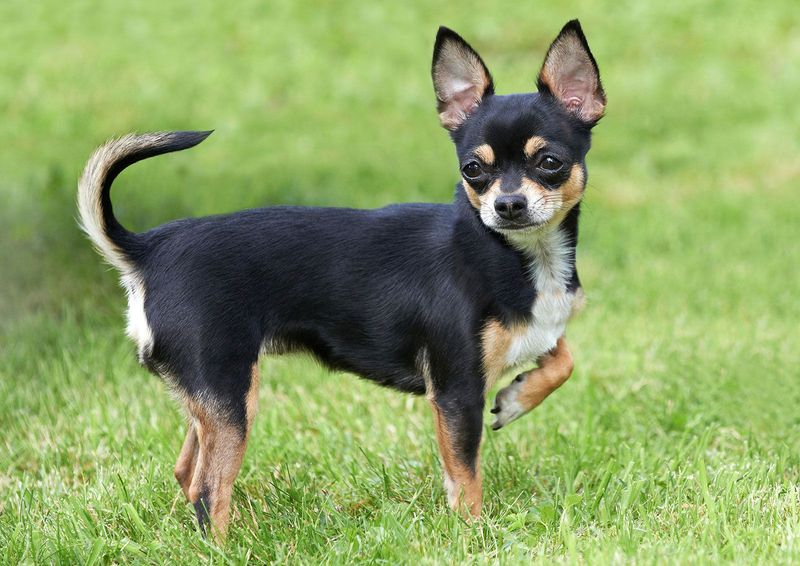
Chihuahuas may seem heartless at first glance, often appearing to be distant or standoffish, especially with strangers. Their small size can make them seem more like a feisty little character than a cuddly companion, and they tend to have a more reserved, independent attitude.
Many Chihuahuas are very selective about who they show affection to, making them seem aloof or even grumpy.
However, once you’ve earned their trust, Chihuahuas can be extremely loving, affectionate, and protective of their owners. They might not shower everyone with love, but the bond they form with their favorite humans is deep and lasting.


